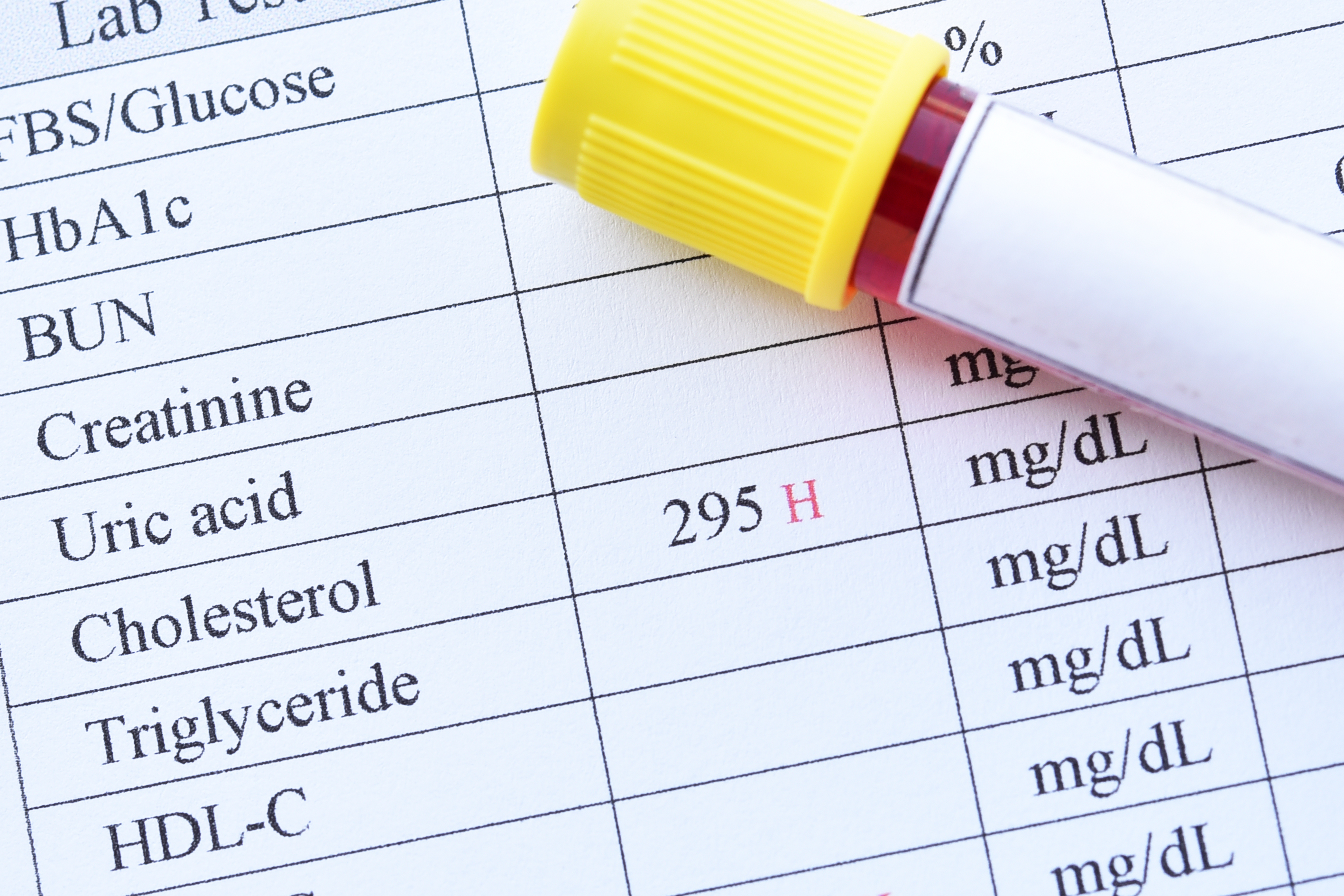Dietitian vs nutritionist: what are the differences?
Whether you’re searching for nutrition advice as a beginner or you’re well on your way to optimum healthy eating, being aware and promoting healthy eating habits will help you not only lose weight but battle medical conditions, improve your mental health, and enhance your quality of life as a whole.
However, knowing who to speak to in order to receive dietary advice can feel like a uphill battle.
With dieticians and nutritionists available, how do you know the right nutrition experts to work with you and provide nutritional advice?
This article will explain the roles of each of them, allowing you to make the right choice for your individual circumstances.
Dieticians at a glance
Of all the nutrition professionals, dieticians are the only ones that need to be registered and regulated by law.
Registered dietitians (RDs) have been trained to evaluate, diagnose, and treat nutritional conditions. Your registered dietician is a nutrition expert, being well versed in public health and the science behind your food and nutrition plans.
Unlike nutritionists and nutritional therapists, dieticians are the only nutrition professionals who are regulated by law. They are registered with the statutory regulator: the Health & Care Professions Council (HCPC).
Registered dietitians – what qualifications do they hold?
If you’re working with a registered dietitian, they’ll hold a minimum of a BSc Hons in Dietetics (or a science degree with a relation to dietetic and a postgraduate diploma or higher in dietetics.)
Registered dietitians will have studied physiology and biochemistry that helps them set food and nutrition plans. Combine this with social and behavioural sciences, and a dietician is an excellent choice to help with optimum nutrition.

Can I see a dietitian on the NHS?
You can see a dietitian on the NHS. This needs to be arranged by your GP or health professional.
Your first appointment with a dietitian – whether that’s through the NHS or in a private practice – will be a consultation. This consultation will allow your dietitian to assess your health and start identifying dietary and nutritional problems.
After your initial consultation, you’ll proceed on a treatment plan with various dietary interventions, working toward maintaining a healthy lifestyle with special diets and adjustments to daily living.
Why would you go to a dietitian?
A registered dietitian means you’ll benefit from their expert knowledge of nutrition science. You’d see a dietitian for the following reasons:
- See a dietitian if you’re managing a chronic disease
You are trying to manage a chronic illness (high blood pressure, diabetes, or high cholesterol). You’re battling this disease not only with conventional medicine, but through eating habits, too.
How a dietitian can help: Your registered dietitian can help you manage your chronic disease by leveraging the science of food, allowing symptoms to be less extreme by switching up your meal choices and lifestyle. Say, for example, you suffer from diabetes. Your dietitian may recommend a Mediterranean diet to ensure you’re given the right nutrients and help you to determine what that entails.
- See a dietitian if you’re trying to lose weight
Losing weight can feel like a never-ending quest. If you’ve been on your weight loss journey for a while and you’re struggling to meet your goals, seeing a dietitian may be a helpful next step.
How a dietitian can help: If you’re aiming to lose weight, registered dietitians are well versed in creating bespoke food and exercise plans to maintain a healthy appetite while burning off excess calories.
- See a dietitian if you’re suffering with food allergies
Discovering you have a food allergy can be devastating as you feel you have to sacrifice – at times – your favourites to avoid symptoms of food intolerance.
How a dietitian can help: When working with a dietitian, you’ll be able to learn how to manage this allergy without feeling like you’re missing out on previously loved meals.
- See a dietitian if you’ve had weight loss surgery
Weight loss surgery is a serious procedure. Most patients spend a lot of time thinking about the surgery itself rather than life afterwards.
How a dietitian can help: Your dietitian can support you in your post-surgery journey. With a smaller stomach to fill, you’ll need to adapt to healthy diets in which you can still take in essential nutrients. Your dietitian can help you with this.
What can a dietitian diagnose?
Dietitians can have specialisms like many other sectors of healthcare and medicine.
Some dietitians, for example, specialise in specific diseases, like diabetes. On the other hand, dietitians can specialise according to area, such as weight management.
When working with registered dietitians (make sure you check for ‘RD’ at the end of their name,) you’ll often have your weight reviewed and bloods drawn alongside studying your medical history.
After this, your dietitian can make a diagnosis and treat diseases by building a tailored treatment plan for you.
Conditions that can be diagnosed include kidney disease, heart disease, cancer, obesity, and gastrointestinal conditions.
Nutritionists at a glance
Nutritionists – unlike dietitians – aren’t regulated by law. They don’t work in public clinical settings and are, instead, found in roles in private clinical settings, industry and government.
A registered nutritionist still needs to hold a related science degree.
As such, your registered nutritionist can still effectively give you nutrition advice, but they aren’t specialised for specific medical conditions.
You’ll often find nutritionists as freelancers, who work with private clients, using food to help you achieve your health goals.
Nutritionists, according to the NHS Health Careers website, are “qualified to provide information about food and healthy eating.”

Registered nutritionists – what qualifications do they hold?
It’s important to note that anyone can call themselves a nutritionist. However, to find a registered nutritionist, you should look out for a membership of one of the following:
- The British Association of Applied Nutrition and Nutritional Therapy (BANT)
- Complementary and Natural Healthcare Council (CNHC)
- Nutritional Therapy Council (NTC)
Can I see a nutritionist on the NHS?
You’ll see a dietitian rather than a nutritionist if you’re going through the NHS.
One key difference between a nutritionist and a dietitian is that nutritionists are often freelance and unlikely to be available via the NHS.
How much does it cost to see a nutritionist in the UK?
As nutritionists are often freelance, they tend to set their own fees. These are often related to your location, too.
60-minute consultations with a title registered nutritionist range between £50 and £120, with the average falling at £70.
Why should I see a nutritionist?
Now that we’ve covered the differences between nutritionists and dietitians, let’s explore some reasons why you may benefit from seeing a nutritionist.
- Your weight yo-yos
If you’re focused on weight loss and, despite following steps of various diets, you’re finding that your weight yo-yos up and down, a nutritionist may be a solid investment.
Yo-yo weight is caused by losing too many calories in a short period of time, which plays havoc on your hormones. This, in turn, results in poor health, not to mention sparks mental health problems.
Your body responds to this by lessening the pace of your metabolic rate (ie: your ability to burn calories,) which leads to weight gain and loss of muscle.
A nutritionist can help you by showing you how to eat balanced, healthy diets and teach you how to listen to your hunger cues more mindfully.
- you suffer from emotional eating disorders
Being an emotional eater isn’t a light-hearted addition to a comedy show on television. Emotional eating is just as challenging as any of the other eating disorders, and can be harmful for your physical and mental health.
Nutritionists – specifically a Nutritional Therapist – can help identify your triggers that are causing you to feed your emotional eating behaviours and put strategies in place for overall health improvement.
- You want to meet your health goals but you don’t know how
Eating your five-a-day and exercising weekly doesn’t seem to be working. Whether you’re looking to lose weight for a special occasion, you’re trying to get fit or anything in between, seeing a nutritionist can help guide you.
Your nutritionist will assess your current diet and lifestyle before pinpointing the changes you should make to promote health and wellness and finally reach your goals.
- You’re always tired, no matter how much sleep you get
If you’re suffering from fatigue despite having a good bedtime routine and having high quality sleep, it may be a sign that your body is overworked. Consider your diet. If you’re eating junk food and non-healthy options, your body is having to work hard to produce energy.
But breaking the habit of eating whatever you fancy rather than engaging in mindful eating is a challenging task. Having a nutrition professional in your corner to help guide you and act as further support can’t be underestimated.
It’s worth noting, too, that fatigue may be a symptom of many conditions – some of which are underlying nutritional deficiencies. If fatigue is causing difficulties for you, and if you’re finding it’s having a knock-on effect on your everyday life, please speak to a medical professional.
What can a nutritionist diagnose?
A good nutritionist will go beyond providing nutritional advice. They also are functional medicine practitioners, so they’re able to use testing to identify imbalances.
Take DUTCH testing, for example. These results can flag underlying nutritional conditions and hormone imbalances.
Other tests can be taken to assess digestion and gut health, food allergies and intolerances, and even vitamin and mineral profiles.
It’s worth noting, again, that nutritionists are able to call themselves nutritionists without a master’s degree, bachelor’s degree, or even a related science degree.
Therefore, if you opt for a nutritionist rather than a dietitian, please be cautious about who you choose.
Nutritional therapist
Just like nutritionists, nutritional therapists aren’t regulated by law in the UK. However, they should be registered on health boards.
A registered nutritional therapist will need to be a part of The Nutritional Educational Commission (NTEC), where they adhere to their own code of ethics.
A nutritional therapist uses scientific evidence to advise their clients about how to nourish their body most effectively. Working on a 1:1 basis, a nutritional therapist should focus on you as an individual and the changes you can make to reach optimum nutrition.
Nutritional therapist – what qualifications do they hold?
Nutritional therapists are not regulated by law in the UK, but you can pinpoint whether they are qualified health professionals by the professional bodies and registers they are part of.
These health boards are set up to safeguard you against health coaches who have no formal training or a related degree.
One of the core professional bodies for nutritional therapists is the Complementary and Natural Healthcare Council (CNHC). If registered with the CNHC, your nutritional therapist will refer to themselves as “CNHC registered nutritional therapist.”
In order to meet the CNHC’s registration criteria, nutritional therapists need to have met the minimum national standards of practice through training set by the Nutritional Therapy National Occupational Standards and the Nutritional Therapy Core Curriculum.
What does a nutritional therapist do?
Nutritional therapists leverage nutrition science.
When working with a nutritional therapist, you’ll be given bespoke and personalised nutrition, lifestyle, and dietary advice to enhance your overall health and wellbeing.
Nutritional therapists believe that biochemical and nutritional imbalances lead to poor health and medical conditions.
Approaching each case holistically, a nutritional therapist will put together a nutrition and lifestyle map to improve your health.
Nutritional therapists also advise you to take various laboratory tests to study your nutrition imbalances and provide a snapshot of your digestive system and liver. They then will analyse the results before creating a treatment plan through food, habits, and lifestyle changes.

Can I see a nutritional therapist on the NHS?
You cannot see a nutritional therapist on the NHS. Nutritional therapists are often freelance or self-employed, so you’ll need to pay privately.
How much does a nutritional therapist cost?
Nutritional therapists are generally self-employed, meaning they set their own rates. The cost of a session with a nutritional therapist will vary depending on any tests you’re having or additional dietary supplements you’ll need.
That said, some nutritional therapists can charge as little as £40 for an initial consultation, and range all the way up to £160. After this, prices vary from £30 to £100 per follow-up sessions. This is without testing or dietary supplements.
Why should I see a nutritional therapist?
Nutritional therapists can be a fantastic way to improve your overall daily health. Here are some reasons why you should see a nutritional therapist.
- You suffer from a chronic, lifelong medical condition
Living with a lifelong medical condition is a challenging pill to swallow. While food may not be able to cure the condition itself, you can work with nutritional therapists to limit your symptoms through diet, resulting in a better quality of life.
- You believe you may have a food allergy, sensitivity, or intolerance
What you eat can cause unwanted symptoms in certain people. From less severe (but irritating) side effects like mood swings and anxiety to more dangerous reactions like anaphylactic shock, nutritional therapists can use nutrition science and testing to help connect the dots.
You’ll then be able to work together to pinpoint trigger foods, before working on a plan to adapt your diet.
- You want to maintain a healthy lifestyle and prevent poor health conditions
You don’t need to be suffering from poor health to work with nutritional therapists.
Studies around the world have proven, for example, that huge proportions of deaths caused by cardiometabolic diseases (heart disease, stroke, and type 2 diabetes,) are associated with suboptimal eating habits – particularly due to the excess intake of sodium.
In one study that took place in the United States, it was found that out of 702,308 adult deaths due to stroke, heart disease, and type 2 diabetes, 45% of them (or 318,656) were associated with inadequate intake of certain foods and nutrients required for healthy living, as well as over consumption of unhealthy foods.
Good nutritional therapists can help you prevent diseases by guiding you into maintaining a healthy lifestyle through food and healthy eating.
- You’re planning for a baby
Both male and female parents-to-be would benefit from a nutritional therapist while preparing for pregnancy.
Research suggests a strong link between fertility and nutrition. Diets with low levels of saturated fats and high levels of vegetables, fish, and whole grains improve fertility in men and women.
Various tests can reveal what your bodies are lacking, which can then be supplemented with dietary supplements and a change in diet.
Plus, ingredients like folic acid – found in foods like spinach, peanuts, and beans – will be helpful during pregnancy, too.

What can a nutritional therapist diagnose?
Legally, nutritional therapists are not allowed to diagnose medical conditions. However, they can prescribe various diets, supplements, and carryout laboratory testing.
Good nutritional therapists should sign-post you to a medical professional if they spot concerning symptoms.
What about health coaches?
Health coaches are more generalised than nutritionists, nutritional therapists, and dietitians.
When working with health coaches, you’ll be focusing on changing your behaviour. While you may take a look at nutrition and diet, it will be at a more generalised level. Instead, you’re more likely to work on things like goal setting and positive psychology.
Dietician vs nutritionist: it’s all about healthy eating
In the debate between dietician vs nutritionist vs nutritional therapist, it’s important to assess the key differences between the three to help you choose the right nutrition professionals for you.
Whether you choose a nutritionist or a dietitian, make sure you do your research, understand your overall goals, and be ready to dedicate yourself to healthy eating.
While the three are different and have their own unique benefits, one thing ties them together: all are nutrition professionals dedicated to nutrition science for their patients’ wellbeing.
References
Dietitians should be registered with the Health and Care Professions Council– HPCP UK
There is also consensus on the benefits of certain maned dietary patterns such as the Mediterranean diet for prevention and management of type 2 diabetes – BMJ
Nutritionists are the heart of a patient’s health by using their knowledge of the science of food to help individuals and groups make the right choices – NHS Health Careers
The average cost of a nutritionist is £50 – £70 – Bark
Inadequate nutrition is invoked as one of the mechanisms underlying fatigue – National Institutes of Health
CNHC was set up with government support to protect the public by providing a UK voluntary register of health practitioners – Complementary & Natural Healthcare Council
Several lines of evidence indicate that realistic modifications of diet and lifestyle can prevent most CAD, stroke, diabetes, colon cancer, and smoking-related cancers – National Library of Medicine, Disease Control Priorities in Developing Countries
Studies found that nearly half of all the deaths in the United States in 2012 that were caused by cardiometabolic diseases were associated with suboptimal eating habits – NIH.gov
Diets high in unsaturated fats, whole grains, vegetables, and fish have been associated with improved fertility in both women and men – Frontiers in Public Health
While we've ensured that everything you read on the Health Centre is medically reviewed and approved, information presented here is not intended to be a substitute for professional medical advice, diagnosis, or treatment. It should never be relied upon for specific medical advice. If you have any questions or concerns, please talk to your doctor.




